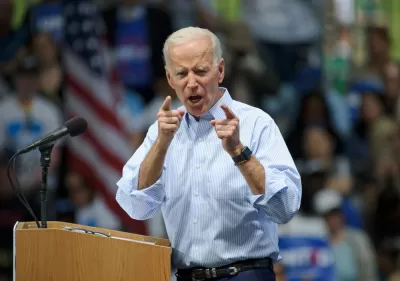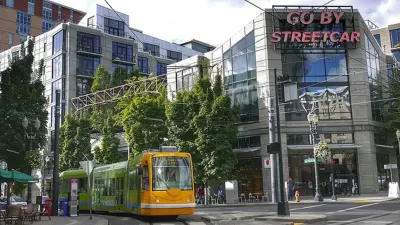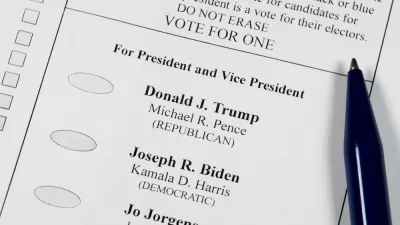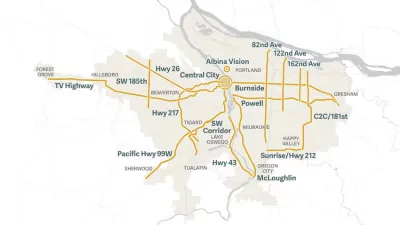Without buy-in for new ways of thinking at the state level, the presidential election is not likely to change much about the ways the United States plans and funds transportation infrastructure.

Yonah Freemark offers a little perspective about the future of transportation planning and policy heading into the presidential election next week, starting first with a nod to the conventional thinking about the potential of a major sea change at the federal level to deliver necessary change in how the nation plans and funds its transportation priorities:
Hoping to respond to the economic crisis brought on by COVID-19 and the prospect of Democratic control over both houses of Congress and the White House, Senate Democrats have begun preparations for a $1 trillion infrastructure package.
The list of possibilities for a Democratic-led coalition on transportation are enticing, but Freemark insists that far bigger prizes can be found at the local and state level:
Yet the key questions regarding transportation in the United States—whether the country is able to truly adapt its mobility system to mitigate the devastation wrought by climate change; whether we integrate transportation and land-use planning so as to reduce exurban expansion and automobile dependency; whether we harness access as a tool to reduce inequality, rather than as a mechanism to further empower and enrich a lucky few—are in fact more often than not in the hands not of the federal government, but rather in those of elected officials at the state and municipal levels.
According to Freemark, states and cities have a habit of making regressive choices on transportation, and "neither the federal government nor lower levels of government have been particularly effective custodians of their massive expenditures on transportation—at least when it comes to achieving more sustainable and equitable outcomes."
In the rest of the article, Freemark throws water on the idea that an infrastructure stimulus will provide equitable or sustainable projects without buy-in from local and state governments. The solution to these challenges, according to Freemark: change at lower levels of government, not just at the very top.
FULL STORY: The path to a better transport system runs through progressive states and cities

Alabama: Trump Terminates Settlements for Black Communities Harmed By Raw Sewage
Trump deemed the landmark civil rights agreement “illegal DEI and environmental justice policy.”

Study: Maui’s Plan to Convert Vacation Rentals to Long-Term Housing Could Cause Nearly $1 Billion Economic Loss
The plan would reduce visitor accommodation by 25% resulting in 1,900 jobs lost.

Planetizen Federal Action Tracker
A weekly monitor of how Trump’s orders and actions are impacting planners and planning in America.

Wind Energy on the Rise Despite Federal Policy Reversal
The Trump administration is revoking federal support for renewable energy, but demand for new projects continues unabated.

Passengers Flock to Caltrain After Electrification
The new electric trains are running faster and more reliably, leading to strong ridership growth on the Bay Area rail system.

Texas Churches Rally Behind ‘Yes in God’s Back Yard’ Legislation
Religious leaders want the state to reduce zoning regulations to streamline leasing church-owned land to housing developers.
Urban Design for Planners 1: Software Tools
This six-course series explores essential urban design concepts using open source software and equips planners with the tools they need to participate fully in the urban design process.
Planning for Universal Design
Learn the tools for implementing Universal Design in planning regulations.
Caltrans
Smith Gee Studio
Institute for Housing and Urban Development Studies (IHS)
City of Grandview
Harvard GSD Executive Education
Toledo-Lucas County Plan Commissions
Salt Lake City
NYU Wagner Graduate School of Public Service





























